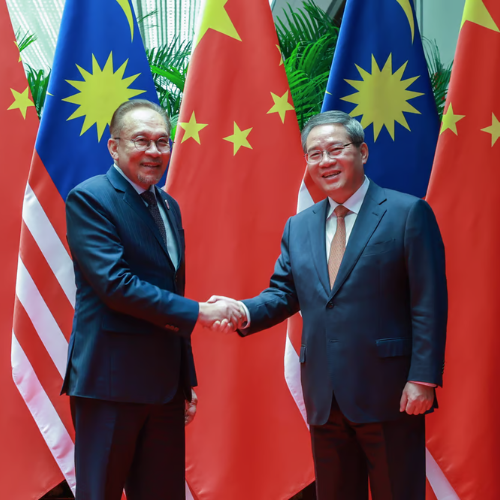Vietnam’s lack of response to a recent complaint from Malaysia about a disputed reef in the South China Sea has raised many questions. Malaysia sent a letter to Vietnam in early October, protesting Vietnam’s activities on a reef both countries claim as their own. But since then, Vietnam has not replied to the complaint. This silence is seen as a thoughtful and careful diplomatic decision. Experts believe that Vietnam is choosing its words carefully to avoid upsetting its relationship with Malaysia, as the two countries share membership in the Association of Southeast Asian Nations (ASEAN).
The Dispute: Who Owns the Reef?
The South China Sea is one of the most disputed areas in the world. It is rich in resources like oil and natural gas and is an important shipping route for global trade. Several countries, including Vietnam, Malaysia, China, and the Philippines, claim parts of the sea as their own. One of the areas in dispute is a small reef, where Vietnam is accused of expanding land through construction activities.
Malaysia, which also claims the reef, sent a formal protest to Vietnam over these activities. The letter was sent to Vietnam’s foreign ministry in early October, but as of now, there has been no official response from Hanoi. This lack of reply is unusual, especially since both countries are part of ASEAN, which generally encourages open communication between its members.
Why is Vietnam Silent?
The main reason for Vietnam’s silence seems to be its desire not to upset its relationship with Malaysia. Despite the dispute over the reef, the two countries have a long history of cooperation in ASEAN, and Vietnam may not want to risk harming this relationship. By not responding immediately, Vietnam is sending a subtle message that it does not want to escalate tensions, especially with a neighboring country that shares similar concerns about China’s growing influence in the region.
Vietnam’s careful response also reflects the need to balance its own territorial interests with the complexities of international diplomacy. ASEAN, a group of 10 Southeast Asian countries, often struggles to take a unified stand on major regional issues, especially when it comes to the South China Sea. Vietnam may not want to further complicate the situation by publicly engaging in a dispute with Malaysia at a time when the group is already divided over how to handle China’s actions in the region.
Malaysia Inches Closer to China Amid Rising South China Sea Tensions
ASEAN Divisions and China’s Role
One of the key challenges in addressing the South China Sea dispute is the division within ASEAN itself. The member countries, although sharing concerns about China’s claims to almost the entire South China Sea, have differing views on how to handle the issue. Some countries, like the Philippines and Vietnam, have been more vocal in opposing China’s actions, while others, like Cambodia, have been more supportive of Beijing.
This lack of unity within ASEAN has made it difficult to form a strong, collective response to China. As a result, China has been able to use these divisions to its advantage, slowing down progress on negotiations over a code of conduct that could help manage tensions in the region. In such an environment, Vietnam’s silence could be a deliberate choice not to further strain relationships within ASEAN, where cooperation is key to managing regional security.
Shandong Aircraft Carrier’s Provocative Return: Rising Tensions in South China Sea
Vietnam’s move is also part of a larger strategy to avoid drawing too much attention to the specific dispute with Malaysia, particularly when it comes to the broader regional power struggles. While Vietnam has made efforts to develop the contested reefs in the South China Sea, it is also mindful of the need to maintain peace and stability with its neighbors. By not responding to Malaysia’s complaint right away, Vietnam is essentially signaling that it is focused on its own interests but does not want to escalate the situation unnecessarily.
Malaysia’s Complaint and Vietnam’s Position
While Malaysia’s protest may seem to side with China’s position, it is likely part of Malaysia’s own diplomatic balancing act. Malaysia has been continuing its oil and gas exploration activities in the South China Sea, despite China’s objections. The letter to Vietnam could be a way for Malaysia to show that it is acting fairly in the dispute, taking a stand against activities by both Vietnam and China.
However, this has put Vietnam in a delicate position. If Vietnam were to issue a strong response to Malaysia’s complaint, it could risk damaging bilateral ties. As both countries are members of ASEAN, a sudden deterioration in their relationship would only add to the ongoing difficulties within the group.
In this complex diplomatic environment, Vietnam’s silence on the matter is more than just a lack of response—it is a calculated move designed to manage tensions, protect bilateral relations, and avoid drawing unnecessary attention to a dispute that already involves multiple claimants. This careful approach reflects Vietnam’s desire to avoid escalating the issue, while also asserting its position in the South China Sea in a way that does not alienate its regional neighbors.


